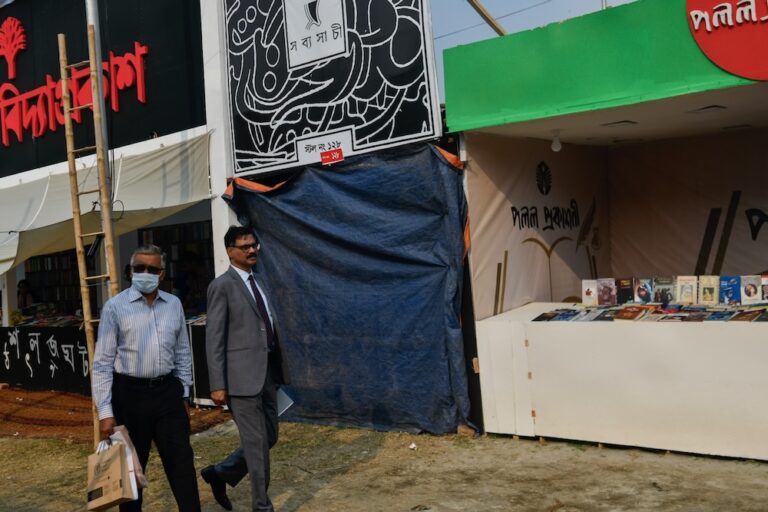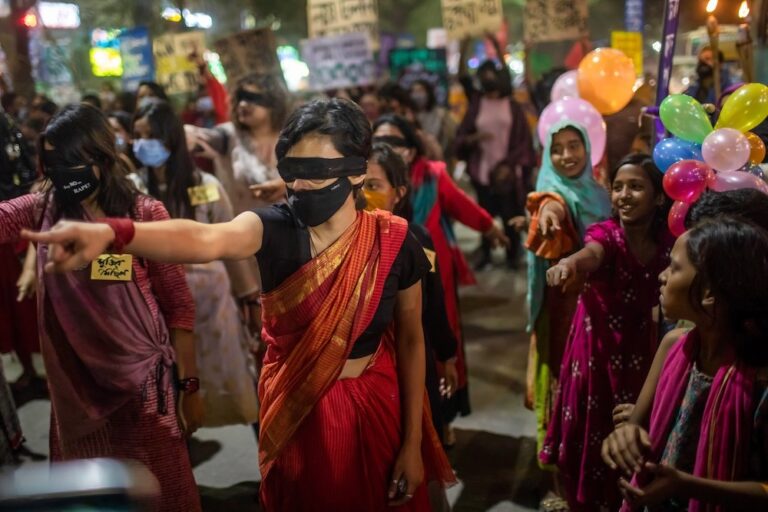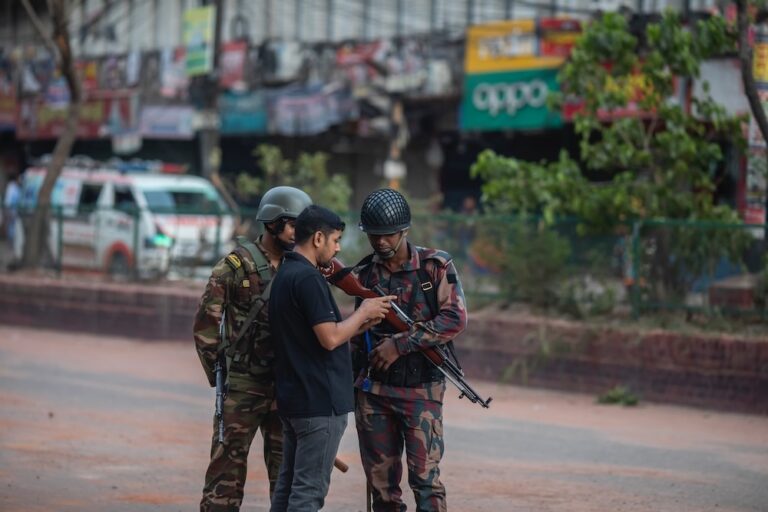(RSF/IFEX) – In a 24 March 2000 letter to Internal Affairs Minister Mohammed Nasim, RSF protested the detention of and charges filed against Mohiuddin Murad, a correspondent in Lakhipur (Noakhli district, south-west Bangladesh) with “Dainik Janakantha”. RSF asked the minister to do everything in his power to secure the release of the journalist. The organisation […]
(RSF/IFEX) – In a 24 March 2000 letter to Internal Affairs Minister Mohammed Nasim, RSF protested the detention of and charges filed against Mohiuddin Murad, a correspondent in Lakhipur (Noakhli district, south-west Bangladesh) with “Dainik Janakantha”. RSF asked the minister to do everything in his power to secure the release of the journalist. The organisation reminded him that in a document dated 14 July 1992, the United Nations Commission on Human Rights emphasised that “detention as punishment for the expression of an opinion is one of the most reprehensible means to enjoin silence”. RSF also expressed its concern about the grave violations of the journalist’s right to a fair trial.
According to information collected by RSF, on 19 March, Mohiuddin Murad was charged with “incitement to violence and rebellion”. On 10 March, the journalist was arrested by Lakhipur police near a Koranic school. Police accused Mohiuddin Murad, who was covering the annual exams, of inciting students to attack policemen after a security agent entered the school to identify students who were cheating. According to the journalist’s colleagues, he never called for violence, but only protested against the security agent’s misconduct. Moreover, the witnesses brought by the prosecution are mainly police officers. A magistrate who also witnessed the incident is not included in the list, even though he openly testified to the journalist’s innocence.
This arrest sets a very regrettable precedent. It is the first time that a journalist has been arrested and charged under the Public Safety Act, which was adopted in January 2000 in order to fight crime. Various human rights organisations have protested the law, which does not allow bail for ninety days. If he is found guilty, Murad risks a heavy jail sentence.


